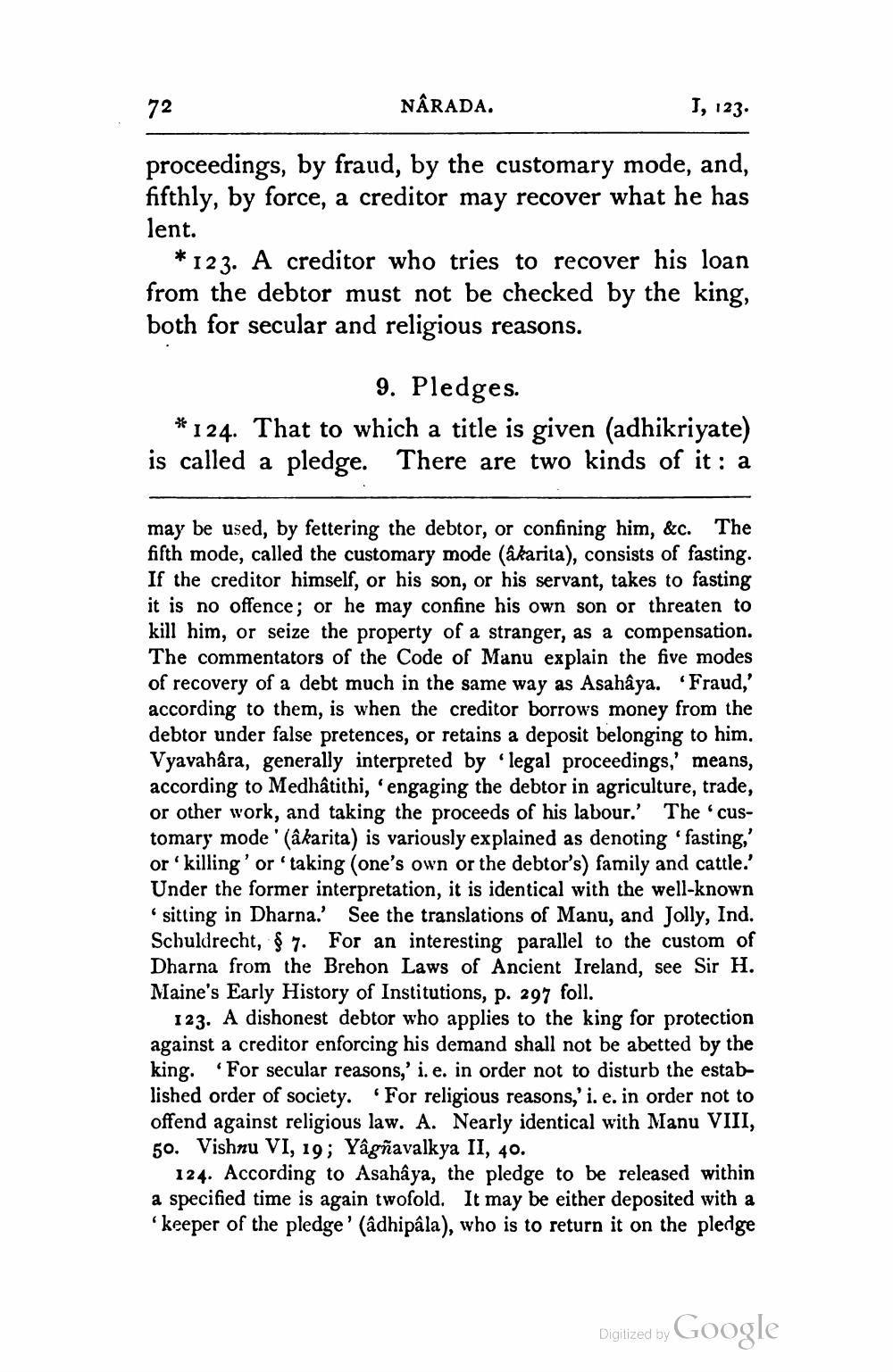________________
72
NARADA.
1, 123.
proceedings, by fraud, by the customary mode, and, fifthly, by force, a creditor may recover what he has
lent.
*123. A creditor who tries to recover his loan from the debtor must not be checked by the king, both for secular and religious reasons.
9. Pledges. *124. That to which a title is given (adhikriyate) is called a pledge. There are two kinds of it: a
may be used, by fettering the debtor, or confining him, &c. The fifth mode, called the customary mode (akarita), consists of fasting. If the creditor himself, or his son, or his servant, takes to fasting it is no offence; or he may confine his own son or threaten to kill him, or seize the property of a stranger, as a compensation. The commentators of the Code of Manu explain the five modes of recovery of a debt much in the same way as Asahaya. Fraud,' according to them, is when the creditor borrows money from the debtor under false pretences, or retains a deposit belonging to him, Vyavahâra, generally interpreted by legal proceedings,' means, according to Medhâtithi, 'engaging the debtor in agriculture, trade, or other work, and taking the proceeds of his labour.' The customary mode' (akarita) is variously explained as denoting 'fasting,' or killing' or 'taking (one's own or the debtor's) family and cattle.' Under the former interpretation, it is identical with the well-known
sitting in Dharna.' See the translations of Manu, and Jolly, Ind. Schuldrecht, $ 7. For an interesting parallel to the custom of Dharna from the Brehon Laws of Ancient Ireland, see Sir H. Maine's Early History of Institutions, p. 297 foll.
123. A dishonest debtor who applies to the king for protection against a creditor enforcing his demand shall not be abetted by the king. For secular reasons,' i.e. in order not to disturb the established order of society. For religious reasons,' i. e. in order not to offend against religious law. A. Nearly identical with Manu VIII, 50. Vishnu VI, 19; Yâgñavalkya II, 40.
124. According to Asahaya, the pledge to be released within a specified time is again twofold. It may be either deposited with a 'keeper of the pledge' (âdhipala), who is to return it on the pledge
Digitized by Google




